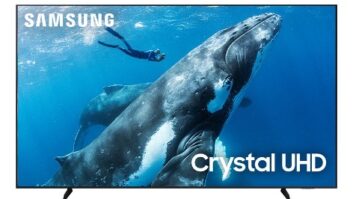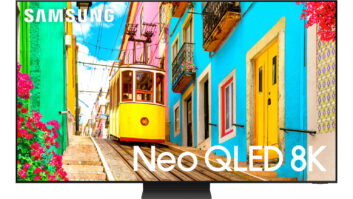New York – FLO TV confirmed that
it will wind down its direct-to-consumer mobile-TV subscription service but
said its white-label service resold by cellphone carriers “is unaffected at
this time.”
“We anticipate
we will maintain the network so that current direct-to-consumer subscribers
will continue to receive FLO programming into spring 2011,” the statement said.
FLO TV “make
appropriate refunds” that “will be communicated prior to discontinuation,” the
company added.
The company, a subsidiary of
chipmaker Qualcomm, also said it has “been engaging in conversations
with a wide range of partners for both the network and the [700MHz] spectrum,”
and is “seeing strong interest in using the FLO TV network or spectrum to
capitalize on the growing imbalance between mobile data supply and demand, the
growth of tablets, consumer demand for high-quality video and print content,
and a richer user experience.”
Both Verizon Wireless and
AT&T offer a version of FLO TV’s subscription service under their AT&T
Mobile TV and Verizon V Cast Mobile TV brands through about a dozen cellphones
combined. The phones are equipped with 700MHz FLO-TV tuners.
Representatives of AT&T,
Audiovox and Verizon declined to comment. Audiovox markets several FLO TV
consumer products.
FLO TV, a subsidiary of chipmaker
Qualcomm, is dropping the consumer-direct service over concerns about the slow
adoption pace and the high cost of marketing, customer service, product development,
and customer acquisition, a source close to the company said. For FLO’s
white-label service, on the other hand, those costs are borne by the wireless
carriers, the source said.
Discussions are underway with the
carriers on FLO’s future in cellphones, the source added. Qualcomm is also
“looking at its options for the spectrum,” which it owns. The company is
considering potential partners, possibly to lease the network, to continue taking
advantage of FLO TV’s “unparalleled distribution platform,” which the source
called “a solution for any content provider” that wants to broadcast content
wirelessly without creating cellular-network congestion.
Current FLO TV that receives FLO
TV’s direct-to-consumer service includes three products marketed by Audiovox.
They are an installed in-vehicle FLO TV tuner to retailers, another version for
car dealers, and a FLO-TV-equipped portable DVD player. For its part, FLO TV
markets a handheld battery-operated personal TV.
Retailers have told TWICE that in
part because of the economy, sales of the in-vehicle tuners have been slow, but
one dealer also mentioned that picture quality was grainy on in-car displays larger
than 7 inches in size. Sales through car dealers were also affected by the
recession-induced decline in new-car sales. In addition, research analysts have
said FLO TV’s white-label service through cellular carriers has been slow to
gain traction, in part because of the small selection of FLO TV-equipped
phones.
For his part, Dr. Paul Jacobs,
CEO of FLO TV owner Qualcomm, has previously said the company misjudged
consumer interest in on-the-go viewing of TV episodes and other long-form
programming compared to viewing short-form video.
The shutdown must have caught
Audiovox by surprise, given the company’s announcement last month that it was
banking on a major price cut to its FLO TV in-car TV tuner and continued
advertising by FLO TV to boost the product’s sales during the holiday season.
The cuts took the retail aftermarket version of the car tuner to $199 from $399,
plus installation. The price of expediter version was also “substantially cut,”
the company said at the time.
FLO TV’s direct-to-consumer
service has been available since late 2009, initially through a FLO TV-marketed
handheld personal TV, which was promoted early this year in a
and was most recently priced at $149 from an original $249. Also
late last year, Audiovox began marketing an Advent-branded FLO TV tuner through
expediters to new car dealers for connection to a vehicle’s existing DVD video
system. Earlier this year, Audiovox shipped the Audiovox-brand in-vehicle tuner
to electronics and car stereo retailers, and Mopar began offering FLO TV as a
car-dealer-installed option in Chrysler, Jeep, Dodge and Ram vehicles.
Audiovox’s $199 DVD/FLO TV portable followed in the summer in limited
distribution.
At the NAB show in April, FLO TV announced
plans in the second half to add interactive capabilities, pay-per-day and event
passes, and time-shifted viewing options. The company also talked about adding
datacasting capabilities
to expand the subscription base.
By July, however, Qualcomm’s CEO
said at an industry conference that Qualcomm was willing to talk to potential
buyers to take over the service-provider role, although he noted that the chip
maker always expected to get out of the service-provider business after
launching it to push the technology.
The 700MHz-band service launched
through Verizon in early 2007, but service was initially available only in 20
markets where unused UHF spectrum was available. FLO TV gradually expanded
service to 65 markets by early 2009, growing that to 85 in June when analog-TV
stations turned off their analog transmitters during the terrestrial-TV
conversion to digital broadcasting. By the end of 2009, service was available in
about 107 markets reaching more than 200 million consumers. Service through
AT&T started in mid 2008.
FLO TV offers up to 20 channels of full-length
simulcast and time-shifted programming from such content providers as ABC, ABC
Entertainment, ABC Family, ABC News, ABC Sports, Adult Swim Mobile, CNBC and ESPN.
A month-to-month direct-to-consumer FLO TV subscription costs $14.99/month
for up to 20 channels.













